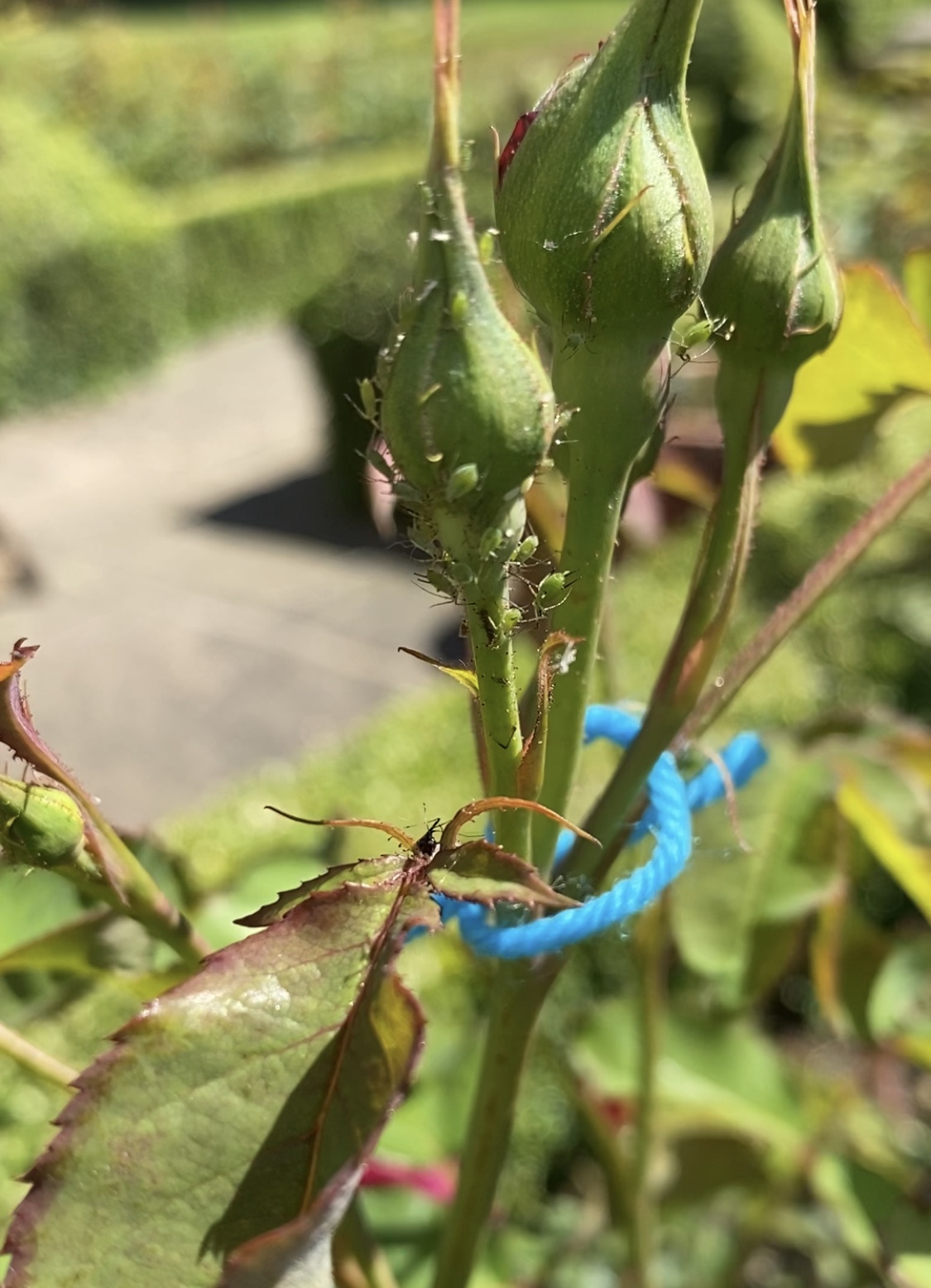Bug Fix
I continue on my “green” journey – trying my very best to replace harmful and synthetic chemicals with natural alternatives. Being a keen gardener - composting, hand weeding, mulching and generally being vigilant around my flowers, fruit and vegetables goes a long way to keeping them in the best of health. However, even the keenest eyes can oversee bugs and pests and if left untreated can soon damage your favourite roses, shrubs and veggies. I have spent time reading and trying various natural bug treatments over the past two years. Some potions had no effect whatsoever and after much trying and failing, trying and failing I consider the following two recipes to be effective. The first uses rhubarb leaves which are high in oxalic acid which pests hate. I have further enhanced the mix with the addition of clove bud oil. Clove bud oil contains eugenol which repels insects and helps to control fungal disease and indeed I found this to be the case when some of my rose leaves covered in a white fungus disappeared after just one spray. The second mix takes over a week to make and uses nettles with the addition of clove bud oil. This mix I will use on my edible plants and vegetables – a great plant food too. May I add this is a “home-brew” and such has not been tested in any way. As with any plant sprays always keep away from children and pets. IMPORTANT : Always spray after the sun has gone down, when the weather is still and dry. Never spray during the day when our important flying insects – bees, wasps, butterflies, ladybirds etc are out doing their best – wait until the late evening when they have all gone to bed. Never spray in direct sunshine because the spray will scorch the leaves and never spray when the wind is blowing because your spray will not go where you want it to.
Preparation
RHUBARB SPRAY
You will need a large saucepan then cut up the leaves into shreds with scissors. Pour over 1 litre of cold water then bring to the boil and simmer for 30 minutes. Leave to cool in the pan then strain (I used a tea strainer) into a large spray bottle.
Add 1-2 drops eco friendly washing up liquid – this will help to emulsify the oil.
20 drops Clove bud oil
Shake well before use then spray onto blackfly, whitefly and greenfly. I followed up with a second and even third daily spray on huge infestations of black fly. This spray contains oxalic acid which is a poison and for that reason I will not be using it on my edibles – fruit, vegetables etc.
Add the boiled leaves to the compost heap.
NETTLE SPRAY
Wearing gloves cut your nettles with scissors then cut into 2-3 inch lengths and pop into a roomy pan or old casserole pan with a lid. Pour over 600ml cold water, give a stir and push the nettles into the water, pop the lid and on leave outside and forget about it for about a week – stirring maybe once or twice during the time. I left mine only six days because I was impatient though my next lot brewing now will infuse for two weeks.
After one to two weeks (you may want to do this outside), take off the lid, give a stir and the smell will send you reeling !!! – it really is awful.
Strain off the leaves then strain again using a fine tea strainer and fill a spray bottle with the foul-smelling liquid. I added then two drops of eco friendly washing up liquid and 6 drops clove bud oil. A good shake and spray away.
This spray I will use on my vegetables as it not only kills aphids, the clove bud oil will deter insects, the washing up liquid helps it to stick to the leaves and not run straight off and the foul smelling nettle water is adored by plants and will give them a welcome liquid feed.
I would not harvest any vegetables until two days after spraying and wash well.
< Back to Recipes










